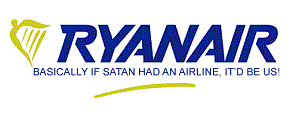In the fast-paced and competitive automotive industry, the Finance and Insurance (F&I) department plays a vital role in the overall success of a dealership. F&I professionals are responsible for securing financing, offering insurance products, and ensuring a seamless transaction for customers. To excel in this challenging and ever-changing landscape, F&I professionals need to stay updated with the latest industry trends, regulations, and best practices.
This is where F&I schools come into the picture, providing comprehensive training and empowering individuals with the necessary skills to thrive in this dynamic field.
The Evolving Role of F&I
The F&I department of a dealership is no longer just an afterthought; it has evolved into a crucial revenue-generating entity. Today, F&I managers are expected to be customer-oriented problem solvers, knowledgeable about finance, and well-versed in the intricacies of insurance products. With the ever-increasing complexities in the financial and regulatory landscape, F&I professionals must be equipped to navigate through various challenges while ensuring customer satisfaction and compliance.
Benefits of Attending F&I School
Comprehensive Education: F&I schools offer a comprehensive curriculum that covers the fundamentals of finance, leasing, insurance, and compliance. Students gain a deep understanding of the sales process and how to effectively communicate and build trust with customers.
Regulatory Compliance: Staying compliant with state and federal regulations is crucial for dealerships to avoid legal issues. F&I schools keep students up-to-date with the latest compliance requirements, ensuring that they conduct business ethically and lawfully.
Industry Trends and Technology: F&I schools expose students to emerging industry trends and advancements in technology. This knowledge is essential for adapting to changing customer preferences and streamlining operations.
Soft Skills Development: In addition to technical knowledge, F&I schools emphasize the development of soft skills, such as communication, negotiation, and problem-solving. These skills are instrumental in fostering long-lasting relationships with customers and colleagues.
Networking Opportunities: F&I schools often provide valuable networking opportunities. Students can connect with industry professionals, potential employers, and peers, creating a supportive community that aids career growth.
Real-world Simulations: F&I schools often incorporate real-world simulations to give students practical experience in handling various customer scenarios. This hands-on approach prepares them for the challenges they’ll face on the job.
The Role of Technology in F&I Training
As technology continues to shape the automotive industry, F&I schools are incorporating innovative tools to enhance training effectiveness. Virtual reality (VR) and augmented reality (AR) simulations are increasingly used to replicate real-world scenarios, allowing students to practice their skills in a risk-free environment. Additionally, online learning platforms enable students to access course materials and participate in interactive sessions from anywhere, making education more accessible and flexible.
Conclusion
The Finance and Insurance department is a crucial aspect of any successful automotive dealership. F&I professionals play a pivotal role in ensuring customers receive the best financial solutions and insurance options while safeguarding the dealership’s compliance with regulations. Attending an F&I school provides individuals with the necessary knowledge, skills, and confidence to excel in this challenging field. By staying updated with industry trends, mastering compliance requirements, and honing their soft skills, F&I graduates are better equipped to navigate the dynamic world of automotive finance and insurance, contributing to the success of both customers and dealerships alike.

